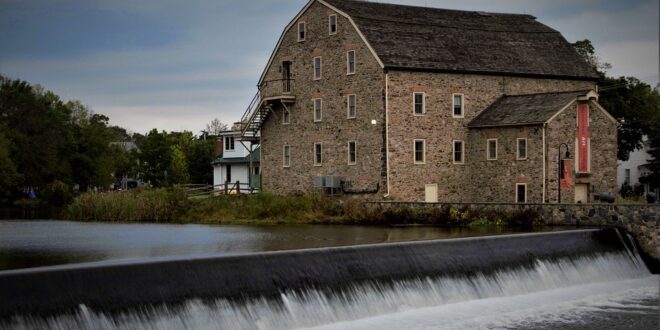Remembering Our Past: A Guide to Effective Historical Preservation
The Importance of Historical Preservation
History is the soul of a nation. It shapes our identity, instills a sense of pride, and provides valuable lessons for future generations. Therefore, it is essential to preserve and protect our past. Historical preservation allows us to maintain a connection
to our roots, enabling us to acknowledge and appreciate the remarkable achievements and significant events that helped shape the world as we know it today.
Preservation Techniques and Strategies
Preserving our history can be an exciting and rewarding endeavor. By employing effective techniques and strategies, we can maintain the stories and tangible remains of our past to stand the test of time. Here are some key approaches:
1. Historical Documentation
Documenting historical events, artifacts, and personal stories is crucial in accurately capturing our history for future generations. Through oral histories, diaries, photographs, and written accounts, we can create a vivid and comprehensive record of the
past. Leveraging modern technology can aid in preserving and disseminating this documentation efficiently.
2. Preservation of Sites and Structures
Maintaining buildings, landmarks, and heritage sites is integral to historical preservation. By implementing careful conservation practices, such as regular maintenance, necessary repairs, and the use of appropriate restoration materials, we can ensure
that these physical remnants stay intact, allowing us to experience a tangible connection to our heritage.
3. Public Awareness and Engagement
Creating awareness within our communities about the importance of historical preservation is vital. Organizing educational programs, exhibitions, and guided tours can help foster enthusiasm for history. Engaging the public in interactive experiences fosters
an emotional connection to our past, encouraging people to actively support preservation initiatives.
4. Cooperating with Local Authorities and Organizations
Collaboration with local authorities, historical societies, and preservation organizations is essential to carry out effective historical preservation projects. These partnerships can bring resources, knowledge, and funding opportunities to safeguard our shared
heritage. By joining forces, we can ensure the success of preservation efforts and empower the community to actively participate in these endeavors.
The Joy of Preserving Our History
Effective historical preservation is not merely a duty; it is a joyful celebration of our roots. By actively engaging in efforts to remember our past, we embrace a sense of pride and honor. Walking through the corridors of time, we connect with colorful
characters, remarkable events, triumphs, and setbacks. Preserving history fills us with wonder and appreciation, enabling us to carry the stories of our ancestors forward, inspiring countless generations to come.
Conclusion
Historical preservation is a precious responsibility that must not be overlooked. Through various techniques and strategies, we can ensure our past survives, despite the passage of time. By documenting historical events, preserving physical structures and
sites, raising awareness, and fostering collaboration, we secure a legacy for future generations to treasure. Remembering our rich history brings us joy, enriches our lives, and helps us build a better future with the wisdom of the past.
 Mind Uncharted Explore. Discover. Learn.
Mind Uncharted Explore. Discover. Learn.



